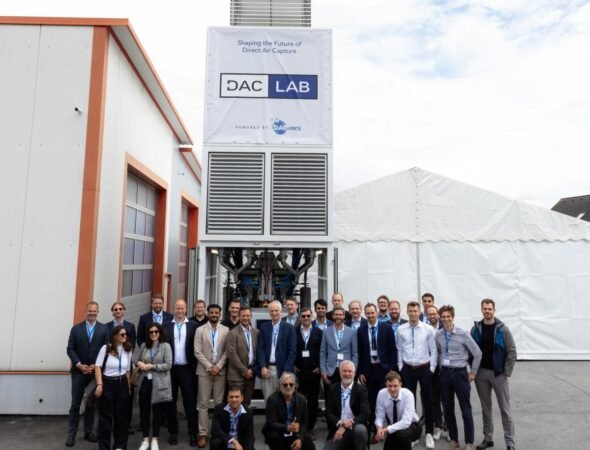Quick Takeaways
-
Carbon Emissions Crisis: Despite global pledges to reduce carbon emissions, they reached an all-time high last year, prompting a critical need for direct carbon capture from the atmosphere.
-
DACLab Innovation: Startup DACLab claims to achieve carbon capture at a reduced energy cost of 1,500 kWh per metric ton, compared to the industry standard of around 2,000 kWh.
-
Unique Approach: DACLab employs a bifurcated system for carbon capture and release, minimizing energy use by operating at lower temperatures (around 70°C) and maximizing efficiency.
-
Future Potential: With plans to scale up their units, DACLab aims for further reductions in energy consumption to under 1,000 kWh per ton, targeting a cost-effective capture price of $250 per metric ton.
Revolutionizing Carbon Capture
The urgency to combat climate change has never been more pressing. Countries worldwide pledged to reduce carbon emissions, yet global levels reached an all-time high last year. To address this challenge, innovative solutions are necessary, particularly in removing carbon directly from the atmosphere. However, this process typically demands substantial energy. Recent estimates suggest that capturing one metric ton of CO2 could require around 2,000 kilowatt-hours (kWh). This high energy cost often limits widespread adoption.
Enter DACLab, a startup challenging conventional methods. It reports using only 1,500 kWh to capture a metric ton of CO2, showcasing a significant difference. By separating the capture and release processes, DACLab minimizes energy requirements. Instead of heating the purification process to temperatures between 80°C and 120°C like many of its competitors, DACLab operates at a lower, more efficient heat level of around 70°C. This approach reflects an adaptation of technologies originally intended for industrial carbon capture, highlighting the potential for evolving existing solutions into effective new tools.
Path to Widespread Adoption
While DACLab’s claims are promising, the path to widespread efficacy hinges on its cost-effectiveness. The startup plans to sell its units for under $500,000, making it accessible for various industries. If it can reduce energy use even further to below 1,000 kWh per metric ton, the company anticipates a potential cost of around $250 per metric ton—far less than current averages.
This advancement could transform the landscape of carbon capture technologies. However, skepticism remains. The industry has seen numerous claims of breakthroughs that fell flat, leading to disillusionment among investors and stakeholders. Yet, DACLab’s disciplined approach and reliance on proven technology might signal a turning point. If successful, it can contribute meaningfully to our collective effort in mitigating climate change, offering a practical solution to the urgent challenge of atmospheric CO2 removal. Ultimately, the effectiveness of DACLab’s technology could set a new standard in the industry and reshape the trajectory of our fight against climate change.
Discover More Technology Insights
Stay informed on the revolutionary breakthroughs in Quantum Computing research.
Discover archived knowledge and digital history on the Internet Archive.
TechV1

